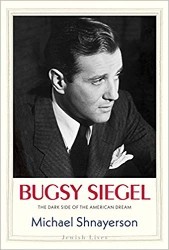Few figures loom as large, or as controversial, on the landscape of late 20th century geopolitics as Henry Kissinger. While unquestionably brilliant, his moral standing has always been problematic. He is generally seen as a single-minded master of Realpolitik who never allowed questions of right and wrong to interfere with the pursuit of national interest, leading critics to brand him as a war criminal for his role in such adventures as the secret war in Cambodia and the overthrow of the Allende regime in Chile.
Jeremi Suri’s political biography aims to rehabilitate Kissinger’s reputation in this regard by showing how his central tenets were inevitable outgrowths of his unique— and uniquely valuable — life experience. Suri is especially good at tracing how Kissinger’s wariness of popular democracy, and concomitant sense that political leaders have an obligation to save their people from their own basest impulses, grew out of his experience growing up in Germany during the rise of Nazism. If Suri’s attempts to exonerate Kissinger ultimately fall short, his well-researched and clearly written study still provides a stimulating corrective for anyone seeking a better understanding of Kissinger and how he came to shape America’s place in the world, for good and for ill.





